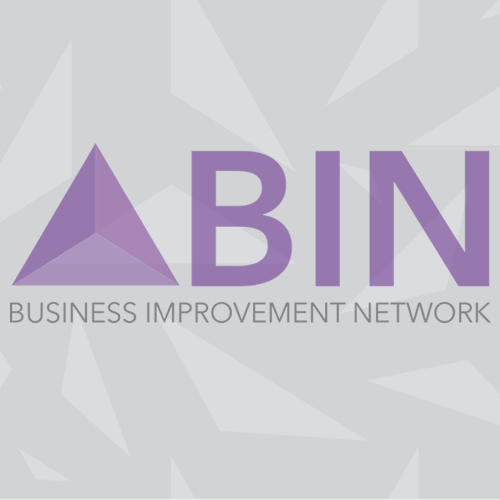Cracking the Productivity Puzzle
By

Cracking the Productivity Puzzle
Productivity in the UK is a problem. And it’s been big one.
For too long, we’ve struggled the issue, offering surface level fixes while seemingly ignoring the deeper, more systemic challenges. We suffer stagnation, frustration and a drag on everything from business performance to national prosperity. It’s time we stop making excuses and start making progress. The so-called ‘productivity puzzle’ isn’t just a quirky economic term, in my view, its an opportunity for business leaders, policy-makers and communities alike, to work together to improve performance and productivity.
What is productivity? Productivity, at its core, is about how efficiently we convert inputs - such as time, money and skills—into outputs. In business terms, productivity is about how much value you create from what you put in. It’s not about working longer hours, it’s about working smarter, using resources better, tapping into the brilliance that exists in your business and aligning people behind purpose and results. Here’s the kicker – and it’s a good one -productivity is directly linked to profitability, employee satisfaction, innovation and competitiveness. Yet despite this, the UK continues to underperform.
According to the Office for National Statistics, the UK’s productivity levels remain around 15% below those of France, Germany and the US. That gap is more than a simple economic statistic, it’s a real-world cost to our businesses, our people and our future.
I talk about this from a UK perspective as I live here and am concerned with the wealth and health of the UK. But many companies globally will be interested in the Productivity Puzzle, and in solving it, and build better businesses and business where they are.
Why is this happening in the UK? The reasons are complex and uncomfortable. Many UK businesses are trapped in outdated operating models, reactive leadership styles and a reluctance to invest in long term capability. Too often, we prioritise short-term results over sustainable performance. We stick with ‘how we’ve always done it’ even when it clearly no longer works. Leaders get buried in the day-to-day grind and fail to create the space or clarity needed to innovate and improve. Meanwhile, talent is underutilised, systems are clunky, decision-making is slow and alignment becomes patchy or disjointed.
Improving productivity requires bold clear leadership, intentional culture and the courage to challenge what’s not working and lead changes. It demands that we engage our people rather than trying to squeeze more out of them. Productivity isn’t just a management metric, it’s a human issue. When people are clear about their roles, connected to a purpose and empowered to do great work, performance improves. When teams trust each other, have the right tools, and aren’t drowning in bureaucracy, results follow. Conversely, poor productivity leads to burnout, disengagement and wasted potential, and that’s before we consider the cost to customers, investors, wider society and the Government.
Let’s think about that wider impact. Productivity isn’t only about your bottom line, it’s about national resilience and development. A more productive business creates higher wages, funds investment in people and growth, and contributes more in tax which the UK Government is desperate for. This fuels public services, supports infrastructure and helps local communities thrive. The UK economy desperately needs a boost, and business productivity may just be the engine that can deliver it.
Andy Haldane, former Chief Economist at the Bank of England, summed it up perfectly, stating…
‘Productivity is what pays for pay rises, for better public services, and for future investment. Without it, we are poorer — individually and collectively.’
Of course this is a societal issue, as much as it is a business matter.
The good news is that this is fixable. The UK has world class talent, entrepreneurial energy, technology and proven success stories. But we need to be honest about where we are, brave about what needs to change and focused on intentional action where it’s needed. This means leadership teams investing in people, rethinking strategy, upgrading systems and building cultures (by design) that encourage accountability, innovation and continuous improvement.
Solving the productivity puzzle isn’t someone else’s job, its ours, you, me, we, us! It matters because your business, your people, your customers and your country are all affected by how well you perform as business leader. It matters because we can no longer afford not to care. And it matters because if we get it right, we all benefit. Great business makes great sense for us all.
So, if you’re frustrated by spinning your wheels, watching performance plateau or feeling like you and your team could achieve more, then lets act. Let’s act together and start solving the puzzle.
Help is at hand.
At the Business Improvement Network we offer various sessions, debates, diagnostics and interventions to help you identify, understand and improve such matters as performance, productivity, leadership and growth, mergers and such like.
We offer networking sessions open to business leaders and managers from across the business landscape to get together, or we can run sessions specifically for you, your company and your network to connect, share, learn and problem solve together.
The Productivity Puzzle is a matter for attention, and together we can better identify, understand and crack it
About the author
PJ Stevens is an expert in organisational change, performance and improvement, with 20 years experience. He is chair of the business improvement network.
Enjoyed reading these articles?
Have you got something you can share with the Network. Why not submit an article